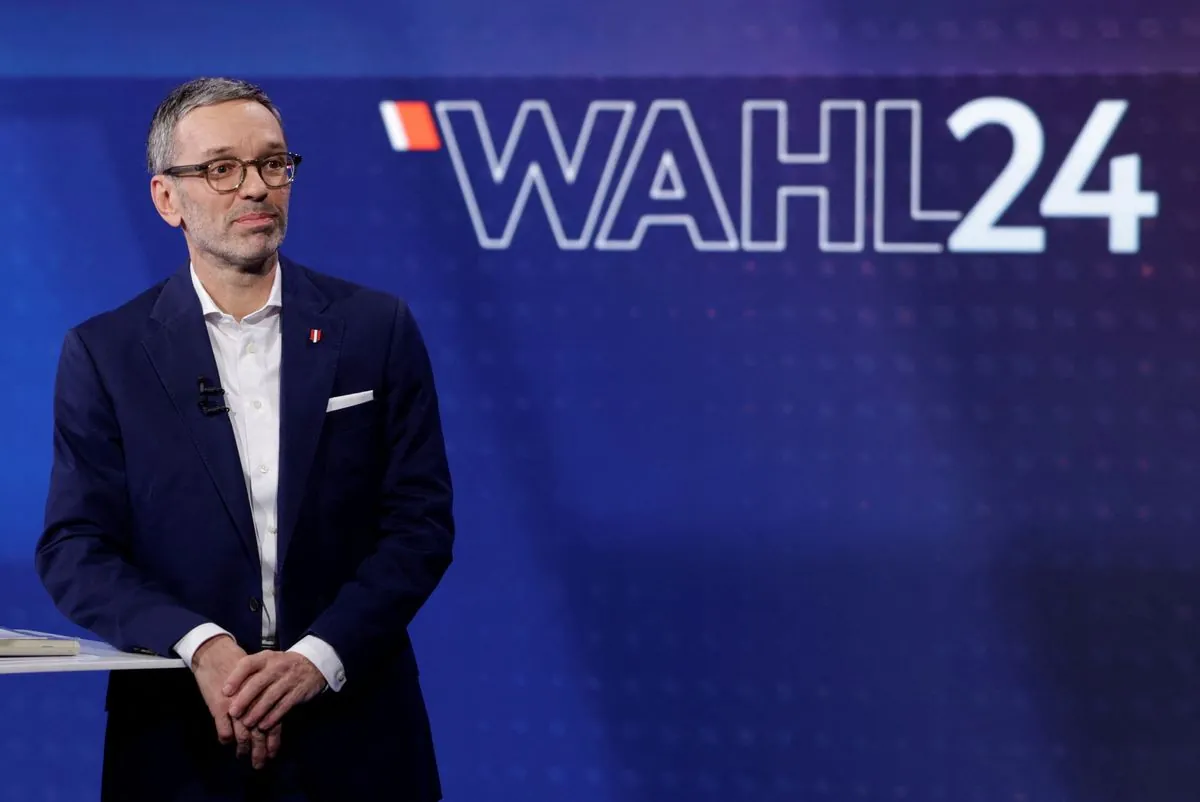In Austria, a nation known for its rich cultural heritage and strong democratic traditions, the upcoming parliamentary election on September 29, 2024, has become increasingly focused on one controversial figure: Herbert Kickl, leader of the far-right Freedom Party (FPO). Despite having one of the lowest approval ratings among top Austrian politicians, Kickl has managed to dominate the political discourse, leading polls and shaping the narrative of the campaign.
Karl Nehammer, the current Chancellor and leader of the conservative People's Party (OVP), has framed the election as a choice "between him and me," effectively turning the vote into a referendum on Kickl's leadership. This strategy has inadvertently elevated Kickl's profile, prompting the FPO leader to quip, "I don't know if I should feel more honoured or stalked!"
Kickl's rise to prominence comes at a time when Austria, like many European nations, faces significant economic challenges. The country's economy is poised to shrink for a second consecutive year, with inflation remaining stubbornly above the European Union average. These economic woes have fueled discontent with the current OVP-Greens coalition government, providing fertile ground for Kickl's anti-establishment rhetoric.
The FPO, under Kickl's leadership, has capitalized on this dissatisfaction, advocating for tougher immigration laws and criticizing Austria's handling of the COVID-19 pandemic. Kickl's campaign against coronavirus restrictions, including lockdowns and vaccine mandates, has resonated with a significant portion of the electorate. It's worth noting that Austria had the highest rate of vaccine holdouts in the EU during the pandemic.
However, Kickl's provocative style and controversial statements have made him a polarizing figure in Austrian politics. He has embraced conspiracy theories, including claims about the effectiveness of ivermectin against COVID-19, and has opposed sanctions against Russia over its invasion of Ukraine, citing Austria's long-standing neutrality.
"It's impossible to form a government with someone who adores conspiracy theories, who describes the WHO, the World Health Organization, as the next world government and the economic forum in Davos as preparation for global domination."
Kickl's political history is marked by controversy. As interior minister in a previous coalition government, he was dismissed following a scandal involving his coalition partner. His tenure was also marred by a controversial police raid on the domestic intelligence agency, which critics claim was an attempt to purge it of political opponents.
Despite these controversies, Kickl has positioned himself as a "Volkskanzler" or people's chancellor, a term that has raised eyebrows due to its historical associations with Nazi propaganda. This, combined with his past statements about the Waffen-SS and the FPO's historical connections to former Nazi officials, has led to accusations of extremism from his political opponents.
As the election approaches, the question of coalition formation looms large. Other party leaders have vowed not to work under Kickl, potentially complicating the post-election landscape. Unlike some of his European counterparts, such as Geert Wilders in the Netherlands, Kickl has shown no indication of stepping aside to facilitate government formation.
The upcoming election will not only determine Austria's political direction but also test the strength of its democratic institutions and the electorate's appetite for populist rhetoric. As Austrians prepare to cast their votes, the world watches to see how this Alpine nation, with its rich history and strategic position in the heart of Europe, will navigate these turbulent political waters.
